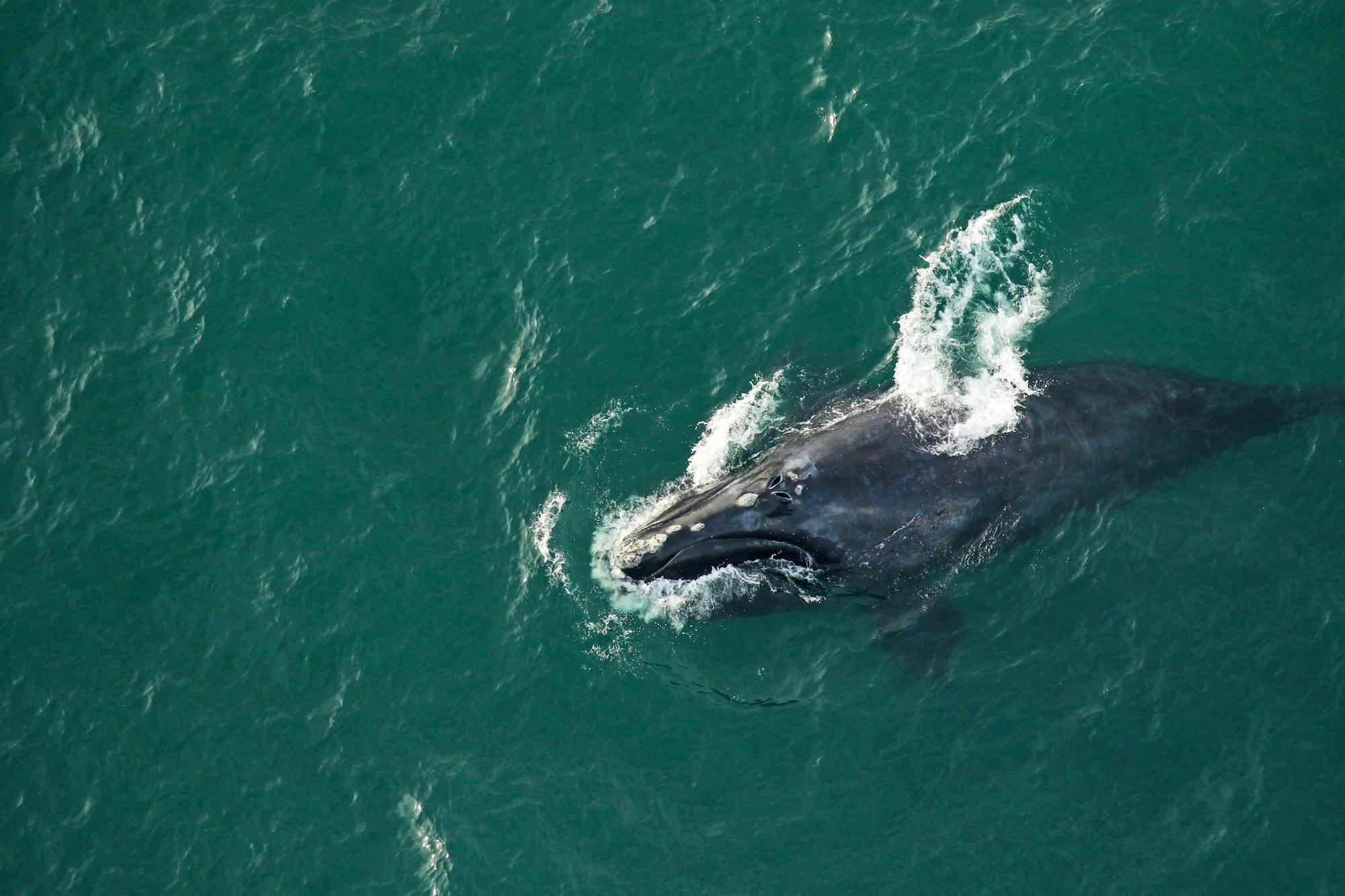In their quest to capture medals, Olympic athletes must overcome grueling challenges. From getting into top physical form to qualifying for matches, and up to the moment their event ends, these competitors are fighting to win. Along the way, we clap to support the injured gymnast, hold our breath for the world-class cyclist avoiding collisions and cheer for the runners furiously crossing the finish line.
For too many of our most critically endangered species, daily life is tantamount to the Olympic contests but without the benefit of public support. One such species, the North Atlantic right whale, is currently swimming against the tide, trying to escape extinction. For these whales, a gold medal would be survival. Through no fault of its own, but rather ours, its chance to medal is getting farther out of reach.
There are only approximately 360 of these creatures remaining on the planet. Since 2017, roughly 123 individual right whales have been documented as harmed or killed, including 39 dead and 34 seriously injured and likely to die. As staggering as those numbers are, there are many more deaths and injuries we never see. Only about one-third of right whale deaths are documented and the true death toll is significantly higher. Deaths are now significantly outpacing birth.
The hurdles these whales face in their quest for survival are daunting. Let’s take a closer look.
1. Climate Change
Like many other marine mammals, right whales have been significantly affected by climate change. Warming waters in the northwest Atlantic have affected prey availability in their traditional foraging grounds.
In some areas, their prey has dwindled significantly. Limited food and the need to travel greater distances to feed are suspected to be one factor in the right whales’ declining birth rates.
In other areas, their prey has relocated, and the whales have followed. This increases the threats of fishing gear entanglements and vessel strikes.
2. Entanglements and Vessel Strikes
Entanglement in fishing gear is the greatest threat to right whales. The National Marine Fisheries Service estimates over 85% of right whales have been entangled in fishing gear at least once and have the scars to prove it. Entanglements cause serious injuries and often ultimately kill the affected whale. Heartbreakingly, we saw proof of this in January 2024 when a female right whale washed up on a beach near Martha’s Vineyard, entangled by lobster gear from Maine state waters.
Entanglements that don’t kill whales outright cause injuries and put a major strain on their health. For example, Chronic entangles cause energetic drain, which further contributes to the declining birth rate. Females historically had calves every three to five years. The time between births has roughly increased to every six to 10 years.
Vessel strikes are the second greatest threat to right whales. Right whales are at risk of lethal collision from any vessel 35 feet and longer going 10 nautical miles per hour or more. Given the extensive commercial and recreational vessel traffic along the East Coast, right whales are at risk any time their migratory route brings them into proximity with this traffic. Collisions with vessels cause acute and blunt force injuries. We saw a brutal example of this in January, when a vessel struck a calf, ultimately killing it. Then in February, a juvenile female was found dead off the coast of Savannah, Georgia, also from a vessel strike.
Vessel traffic, construction, and energy exploration and development also cause noise pollution. Both acute and chronic noise pollution can disrupt the normal behavior of this species. Right whales depend on hearing, not sight, to navigate their watery world and communicate.
3. Political and Legal Obstacles
The threats of entanglements and vessel strikes are worsened by concerted efforts to delay or block conservation measures intended to address them. For example, NMFS proposed to expand a 2008 vessel speed rule to reduce the risk of vessel strikes in August 2022, but the proposal has been in administrative limbo for months.
Another example is the congressional response to a major victory by Defenders and its allies holding NMFS accountable for not adequately protecting right whales from lobster gear. In a direct response to the court’s deadline of 2024 for NMFS to finalize a new rule remedying its errors, Congress enacted legislation in December 2022 to nullify the court’s decision, further delaying critically needed additional protections through 2028.
The proposed vessel speed rule has also been the target of a seemingly endless stream of legislative attacks. Several well-funded lobby groups have enthusiastically supported these attacks. Even when the rule is finalized, it will be vulnerable to a law called the Congressional Review Act. Through this act, Congress could not only repeal the final rule but also prohibit any “substantially similar” rule from ever being finalized in the future.
Right Whales Need Your Help!
As we cheer for our Olympic athletes this year, let’s also join together to support our critically endangered species. North Atlantic right whales don’t have a voice that can echo through the halls of Congress or the Biden administration. That is why, in the face of all these obstacles, we need to raise our voices and advocate for the protections these whales so desperately need.
Join us in telling the Biden administration to take action to save right whales!










